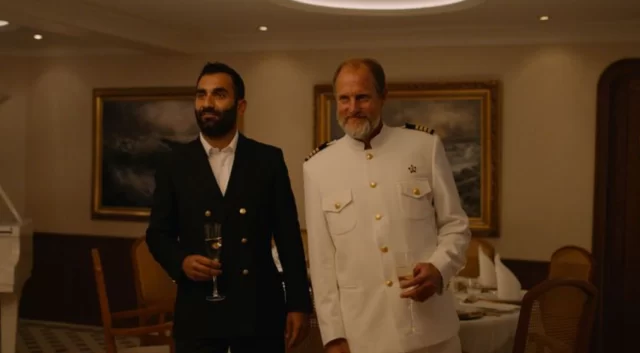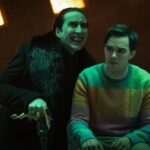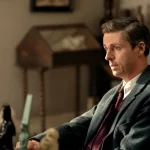Triangle of Sadness: We Dance to All the Wrong Songs, by David Bax

There are things that one finds, in varying degrees, in all of Ruben Östlund‘s films. Some of those things grate on the nerves of his detractors. But, while such touches are in high supply in Triangle of Sadness (more on that later), the ingredient that stands out the most this time is the comedy. As was the case with Force Majeure (and not so much the case with The Square), Triangle of Sadness is funny, at times outrageously so. And that’s enough to keep the other stuff from being too annoying.
Östlund doesn’t really work on a small scale. It’s not that subtlety is a weakness for him so much as it’s something he doesn’t seem to care about. So if he’s going to illustrate how far removed the lives of the ultra-wealthy are from everybody else’s, he’s going to do it on an absurdly massive scale. In this case, that would be aboard an extravagant luxury cruise for one percenters. His filmmaking matches the voyage’s opulence in its conspicuous boldness. We are introduced to the ship itself, for example, with a sequence that wouldn’t be out of place in a Christopher Nolan espionage thriller in which a well-guarded, secret package is delivered to the ship via speedboat and treated with the utmost urgency. It turns out it contains Nutella; one of the passengers requested it and there was none on board.
Yet there remain some humanistic character touches–especially near the beginning–to remind us that the film is from the same director as Force Majeure. Our two leads, Carl (Harris Dickinson) and Yaya (Charlbi Dean), influencers granted complimentary tickets to the cruise in exchange for social media posts, are a couple to whom we are first introduced in the midst of a tense and very relatable couple-type argument about money. The realness of these characters and their insecurities grounds the film even as it titters at how ridiculous their jobs are.
If Triangle of Sadness has anything to say that it can do so without shouting, it’s a conflicted feeling about the malleable relationship our phones give us to the truth. Yaya uses hers to push lies to her followers, pretending to enjoy a plate of pasta she would never actually eat. But the ship’s Captain (Woody Harrelson) uses his to win arguments, Googling quotes to help support his Marxist views. This fascination of Östlund’s goes back at least to Force Majeure, multiple shots and sequences of which were inspired by viral videos.
But that’s a preoccupation, not a theme. There’s a message to Triangle of Sadness you’d have to go out of your way to miss. A person’s worth is not only measured in money, the film says. Rather, it’s in what each individual has to offer in any given situation, like how Carl and Yaya get by on their physical beauty. Those who have nothing to offer but their wealth risk being useless in any (unlikely) situation they can’t buy their way out of.
Triangle of Sadness‘ third act, the specifics of which I won’t spoil here, plays out that exact course of events in what ultimately proves to be a lazily simplistic parable. Still, while it’s true that the move ends with its weakest collection of scenes, the whole thing is still pretty damned funny.





























